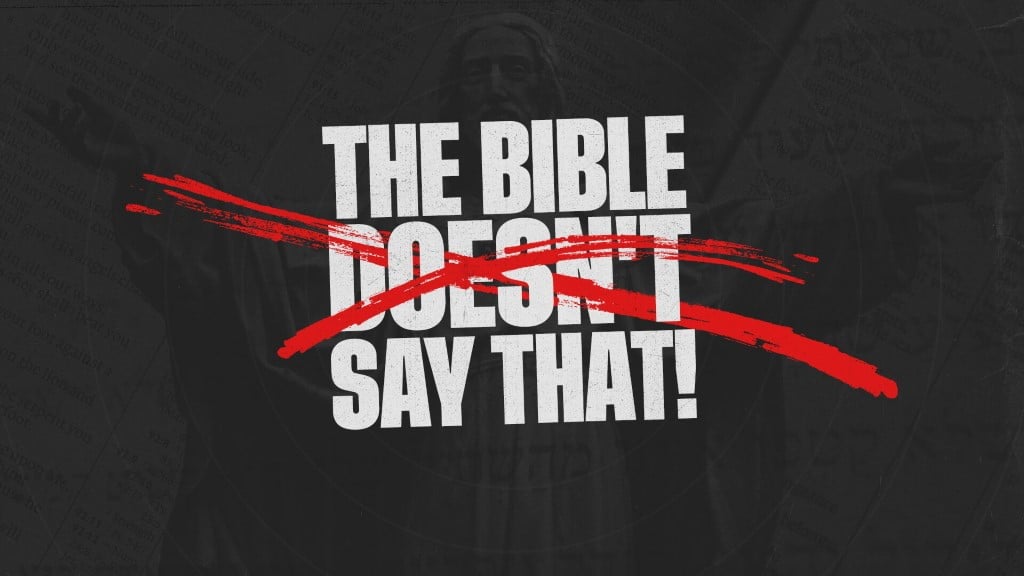The Bible doesn't say that! (adding to vs taking away)

I've heard this so many times it's amazing:
A scripture quoted and a statement made saying, "it doesn't say"...
Like Acts 16:31, Rom 10:13 and John 3:16, for example.
My question to you is; If the Bible doesn't say something in one place, but another place speaks of the same topic and says something additional that's not in the first passage, what should we do with that additional information?
Do we discount the passage that has more information thereby "taking away" from it by quoting the passage that doesn't have that information and say the Bible "doesn't say" something because in the one place it doesn't say it?
Or, do we add to the passage that has less information with the passage that has more information and thereby "adding to" the information we have from the one to give us a more complete knowledge of what it means?
The answer, when asked in this way, is obvious isn't it?
Of course we should add to the scriptures that omit information that is found elsewhere in the Bible with all the information the Bible gives us. This is the proper way to use true theology when studying the Bible. It's the way we should ALWAYS practice our studying and reading of God's word.
But, in modern doctrine within the modern church the first answer is unfortunately true for many, many of the things taught in the church. They discount and take away from areas of the Bible by not teaching them and using the passages that discuss that topic but omit some of the information that exists elsewhere in the Bible.
There are many examples of this in modern doctrine, but I used the above examples of scripture to illustrate my point because it's one of the most important and most dangerous topics to missunderstand and is taught widely incorrectly in the modern church.
I heard a sermon a few years ago that I like to use as an example of today's compromised church. Pastor Phil Reynolds of the Volusia County Baptist Church preached a sermon emphasizing that you only need to believe to be saved, and he pointedly said, "There is nothing else that needs to be said. It's not necessary to sit down for hours with someone and explain anything else, all you have to do is believe". He used the salvation of the jailer in Acts 16:31 as proof for this statement. If you read the next two verses you'll understand the point I'm making about this false doctrine. "32 And they spake unto him the word of the Lord, and to all that were in his house. 33 And he took them the same hour of the night, and washed their stripes; and was baptized , he and all his, straightway." If there was nothing else that needed to be said and it wasn't necessary to sit down with them, then what was the "word of the Lord" they spake unto him? And why did he and all his house get baptized?
Romans 10 and John 3 are also widely used as examples of salvation and touted as the "only truth" necessary for understanding and believing in Jesus and the path to salvation...
As in Acts, how could they believe unto salvation if they don't understand the gospel? I mean the WHOLE gospel, not just the fun part.
Rom 10:14 How then shall they call on him in whom they have not believed? and how shall they believe in him of whom they have not heard? and how shall they hear without a preacher?
What I mean by "the fun part" is that, yes, Jesus loves us and died for us, and He paid the price for us so that we could be saved, but why was it necessary? Why did we need someone to die for us in order to be saved? How should we see Jesus in our minds eye? Are we awesome and so special and wonderful that we deserved this sacrifice? Or, are we wretched and unworthy?
This is the understanding that needs to be conveyed to those who "believe".
Another example I like to use is: "John 6:54 Whoso eateth my flesh, and drinketh my blood, hath eternal life; and I will raise him up at the last day." Basically what some people teach is that the Bible says that if we believe, we are saved. That's true! It does say that. Here in John it says that if we eat and drink of the body of Jesus, we're saved. Does this mean that all we have to do is take communion (symbolically eat and drink of his body) to be saved? If we wanted to take this verse out of context and make a doctrine of it, we could. But that would be silly, wouldn't it? So why do we allow people to deceive us with similar types of doctrine? We have to take the Bible as a whole and obey God in every thing He says, not just pieces of it.
We are saved by grace and belief in Jesus Christ is salvation, but as Jesus said, why would we call Him Lord and do not the things He says? "Luke 6:46 And why call ye me, Lord, Lord, and do not the things which I say?" Why wouldn't we obey Him if we truly love Him? "John 14:15 If ye love me, keep my commandments." The thing I'm arguing here is that many people don't really give their life to God and truly repent. Many people are taught that saying a prayer saves their soul (touting John 3 and Romans 10), but aren't told that they must absolutely mean that prayer, or that it's not saying the words that saves you, it's changing your heart and mind, admitting you're a sinner (and understanding how wretched and unworthy we are), repenting of those sins, and turning to follow and obey the Lord that saves you.
We have to put context in the proper perspective.
We have to read and understand the WHOLE BIBLE in order to understand God and His plan of salvation.
If information is not stated in one part of the Bible, we need to add to it by using the other places in the Bible that are talking about the same topic.
If we exclude that other information and believe or teach only the one place where it doesn't contain that other information, we are believing a lie and teaching a lie.
This is what the devil uses all the time. Missinformation... it's the best form of deceit. Use part of the truth to promote and mix with your lie so that it's more easily accepted as truth.
We have to read the Bible in the proper context.
What is Context as it pertains to understanding the word of God?
- A few verses around the one you're referring to.
- The entire "passage" that is discussing that particular subject.
- The entire chapter.
- The entire book.
- The entire Bible.
Sometimes a few verses surrounding the scripture helps give a greater understanding.
But, sometimes we have a theme that is being discussed and you need to read quite a bit to get the whole meaning.
And, sometimes that theme takes up an entire chapter.
Or three chapters... like 1 Corinthians 12-14 for example.
Or the entire book may be touching on the same subject throughout.
What does context truly mean?
My point of this entire discussion is that the whole Bible must be used for proper context. In order to understand the passages that omit information we must read the other places that add information to it.
The entire word of God has context laced within its entirety.
If you don't read the whole thing, you're missing very important pieces to the puzzle.
Only reading part of the Bible and claiming to understand it is like putting part of a puzzle together, with a big hole in the middle, and claiming to know what's in the missing section even though you've never seen the completed picture.
If you teach (by that, I mean speaking to one or more people about it) using a scripture that doesn't have all the information, and teach that as the whole truth, you are a liar and a deceiver. That's a tough truth but it's the truth.
What's in the missing section of the puzzle?
Only reading part of the Bible and claiming to understand it is like putting part of a puzzle together,
with a big hole in the middle, and claiming to know what's in the missing section even though you've never seen the completed picture.
In order to truly understand the Bible, we have to let the Bible interpret itself. We can't surmise what we think it might mean or interpret it in our own way.
We absolutely can not take things out of context and expect to really understand what God told us.

This picture could contain another island with a palm tree on it in the missing section and I could even tell you it did if I wanted to lie to you. How would you know if you've never seen the completed picture?
My point is that you can't know if a teacher or preacher is lying to you unless you read the Bible for yourself!
Now, if you've read part of the Bible, like you can see part of this picture, you can see little clues about what's in the missing part...
- There's some water splashing on the lower right side
- There's a shadow on the water beside the splashing water
- There's pieces of something sticking out of the blurred section on the right and the top
So you might even be able to guess at what's there but how can you be sure without seeing the picture?
Same with the Bible. If we've read part of the Bible we can begin to guess at what the rest of it says, but do we really want to do that? We could be missing some life-or-death information. Literally!
If you haven't read the Bible, please pick it up today and start reading...
Get the whole picture!
